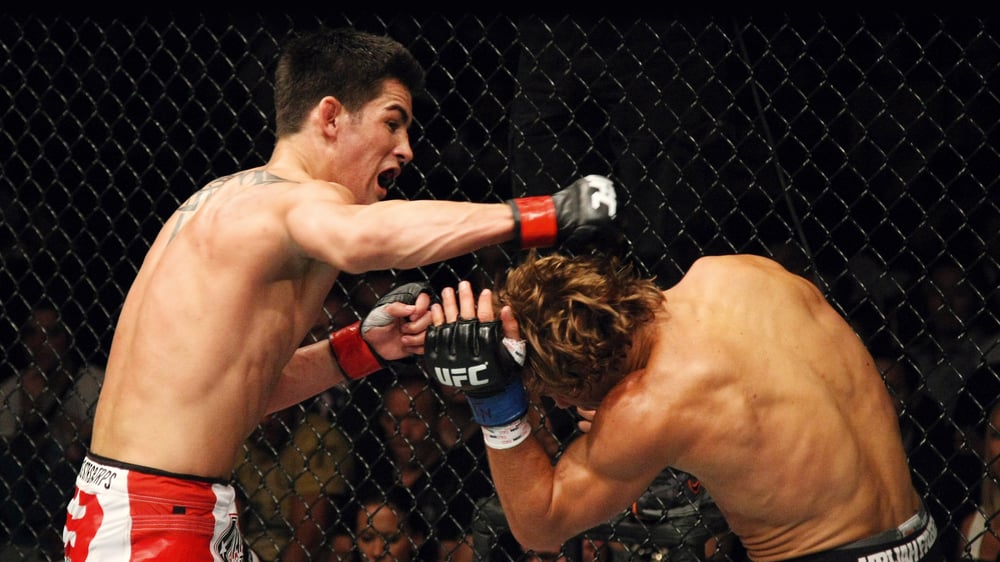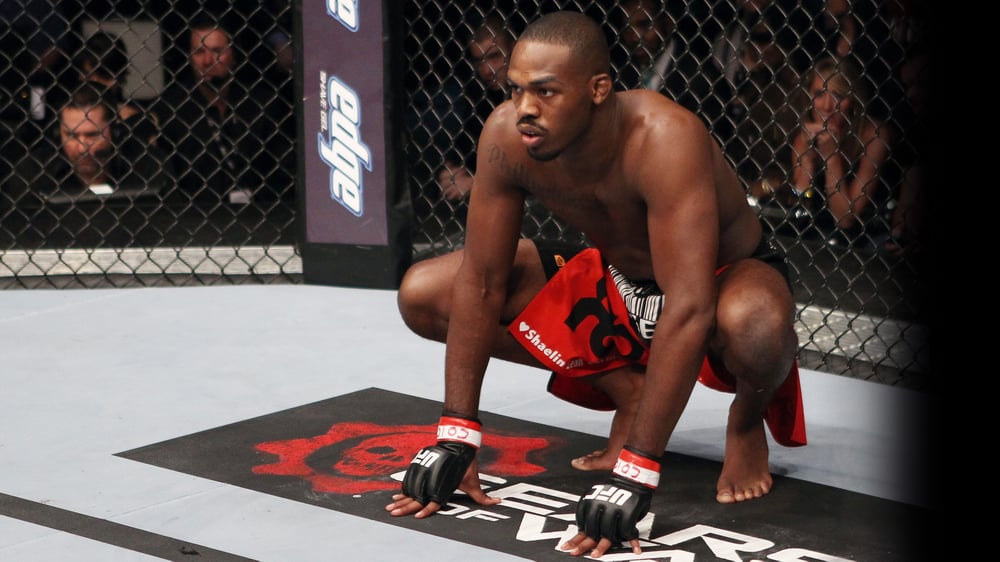
Issue 085
February 2012
Taking a psychological edge in any fight will always give you an advantage, as three of the biggest fights of 2011 proved
Joe Bell is a chartered sport psychologist and one of few leading mental performance coaches in the world specializing in combat sport psychology.
As the old saying goes, all’s fair in love and war. Whether you agree with them or not, psychological warfare tactics clearly play an intricate role in mixed martial arts. Seizing a competitive advantage through mind games is a relatively unchartered territory in sport psychological research, which is surprising as, if utilized correctly, can be extremely effective at mentally catching an opponent off guard, leaving them wide open.
This strategy is by no means original, as throughout history ancient warriors have resorted to such techniques to ensure victory when they were playing for keeps. In his teachings (The Book of Five Rings, 1641) unbeaten legendary samurai Miyamoto Musashi highlights: “If you contaminate or distract the enemy’s mind, his defense is weakened.”
Developing well-disciplined combat sport psychological techniques (e.g. mental toughness, fear control and relaxation) have proven to fast-track fighters to reach the peak of their physical limits. However, with 2011 now being considered the era of a new breed of mixed martial artist, we are witnessing an evolution in mind games, which are successfully ambushing and neutralizing the very psychological tools that enhance performance, by targeting confidence and concentration.
There have been a plethora of creative psychological plays this year, both inside and outside of the Octagon. The crudity of trash talk is always a top contender, but for lack of subtlety it is merely the tip of the iceberg. Today, fighters are finding new and innovative ways to rattle the cage of their opponents. While some stratagems are premeditated others are by-products of performance. The the right are three masterful examples from 2011.
Intimidation: Anderson Silva vs Vitor Belfort, UFC 126
What makes this an effective mind game is the sheer unpredictability of it. Belfort played right into Silva’s hands by reacting emotionally. It was clear as day that Belfort was angry. When angry, the mind struggles to process only one idea at a time because stress hormones flood the bloodstream imparing cognitive function (brain fog). Ability to discipline thoughts and physical impulses are significantly reduced.

Frustration: Dominick Cruz vs Urijah Faber, UFC 132
Cruz’s chaotic style could be considered a mind-game even if it is unintentional. His own unique signature way of fighting – unpredictable bobble-head movement, grasshopper like footwork and random in and out punches – evidently frustrated the ‘California Kid.’ Faber struggled to offload his own lightening skillset while trying to evade the non-stop assault of Cruz. Frustration can choke confidence and can cause athletes excess muscle tension leading to sluggish reaction times.

DECEPTION: Jon Jones vs Rampage Jackson, UFC 135
‘Bones’’ fighter-opening tiger crawl threw everybody, even his trainer Greg Jackson. The haphazardness of such an unorthodox offensive simply attacks concentration. This mind game occupies the logical part of the brain which relies on figuring out how and when to attack/defend, but in Jackson’s case, it was forced to focus on anticipating the unexpected. This leads to hesitation, second guessing and fighting tentatively, all of which struggle to survive in the Octagon.
COUNTERING MIND GAMES
By nature, mind games cause a ripple effect that can alter the potential of a fighter in executing his or her true skillset to maximum ability. To combat them, you have to fine tune your ‘hyper focus’. This involves a fighter being immersed in the moment, where they have no memory of the past or present, they are simply operating in the now.
Distractions are excluded from consciousness and concentration is solely focused on the task at hand everything else unrelated (the guy trying to get in your head) drowns out, even a sense of time vanishes. This state of mind allows a fighter to operate on optimal levels of strength, speed, agility, endurance, strength mobility, and rhythm to elicit a positive result.
The Three R’s is an unassuming intervention which is highly effective at helping fighters develop their hyper focus and remain in the moment and maximize composure by taking the following steps:
Recognize your opponent is trying to attack your confidence or lure your concentration off task.
Regroup by interrupting the flow of an opponent’s baiting which is causing you to focus on those dishonorable cues and prepare to refocus.
Refocus by redirecting your attention back to what you have 100% control over: both your eight limbs and mind. Then execute your best.
All’s fair in love and war? For many mixed martial artists who choose to test themselves inside the Octagon, ‘war’ is exactly what they prepare for. So who decides where the line should be drawn? Either way, as a fighter, always expect the unexpected.










